
Study claims women who have an early career abortion make more money.
Nancy Flanders
·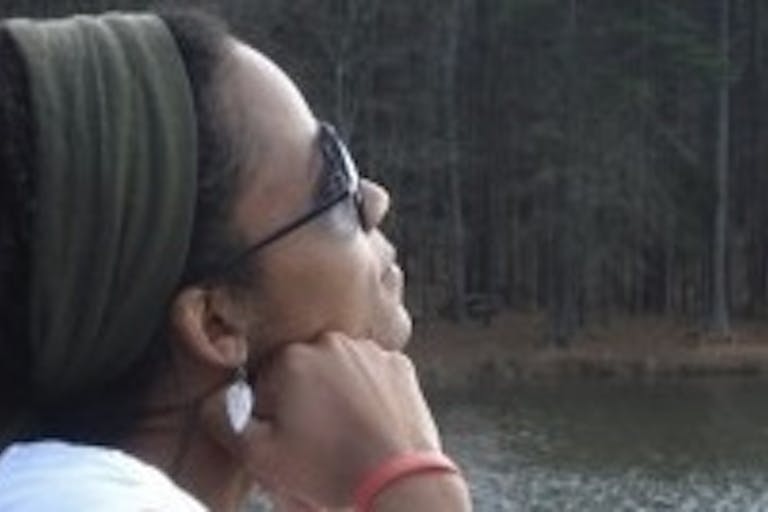
Opinion·By Christina Marie Bennett
If only I wasn’t born black…
Imagine if I sat around wishing I hadn’t been born black. As a kinky-haired girl in a multi-racial family, the thought has crossed my mind before. My racial identity plagued me during childhood summers at my Aunt’s pool. I’d jump out of the water to find my curls shrinking while my cousin’s long blond locks seemed to glisten and dance in the sun. Instead of learning about African kings and rulers in school, I spent most of my childhood hearing that I sprung from an oppressed and downtrodden race. As a seven-year-old, I participated in a play in which my fellow classmates represented people from various nations. While some kids were decked out in regal robes and stunning costumes, my teachers clothed me in a cotton headscarf with brown construction paper chains dangling from my wrists. I have the picture to prove it.
As a child, I often wished I could change my looks in hopes of having a different reality. The harassment and teasing I suffered as a middle-school girl even led me to consider taking my life. Thankfully now that I’m older, I see the beauty in being who I am. I don’t wish for things I can’t change. I love myself, and I’m grateful for the joys and pains that have molded me through the years.
I recently read an article in the The Guardian titled “I wish my mother had aborted me.” In it, Lynn Beisner tells her traumatic story of living with an emotionally and physically abusive mother. She writes that an abortion would have been the best choice for her mother. She assumes that it could have led her to finish high school, get a college degree, possibly find feminism, pick better partners, and at the very least save her from plunging into poverty.
In her own words:
The world would not be a darker or poorer place without me. Actually, in terms of contributions to the world, I am a net loss. Everything that I have done – including parenting, teaching, researching, and being a loving partner – could have been done as well, if not better by other people. Any positive contributions that I have made are completely offset by what it has cost society to help me overcome the disadvantages and injuries of my childhood to become a functional and contributing member of society.
I can sympathize with Lynn’s pain. My mother paid for me to be aborted but told the doctor she had changed her mind and left without a refund. I too have wondered what life would be like for the both of us if I wasn’t here. The difference between Lynn and me lies in the conclusions we came to.
Lynn believes that if she had been aborted, her mother could have had a better life. Yet all she has is her assumptions. Her mother could have aborted her, gotten pregnant a year later, and ended up in the same position she is now. If her mother really wanted to rise above poverty or pick better life partners, she still could have done that with a child. Thousands of single parents do it every day. I’m not saying it’s easy, but it’s completely possible.
Many commented on her article, calling it “brave.” I strongly disagree. While it does take courage to bare your soul, Lynn’s wish to be aborted displays a twisted, fatalistic way of thinking that masks itself as compassion.
“I wish I was aborted” realistically translates to “I wish I was killed in the womb.” Since when did it become acceptable to wish ourselves away? What definition of brave includes looking over our circumstances and regretting that we weren’t taken out so as to avoid them?
Article continues below
Dear Reader,
In 2026, Live Action is heading straight where the battle is fiercest: college campuses.
We have a bold initiative to establish 100 Live Action campus chapters within the next year, and your partnership will make it a success!
Your support today will help train and equip young leaders, bring Live Action’s educational content into academic environments, host on-campus events and debates, and empower students to challenge the pro-abortion status quo with truth and compassion.
Invest in pro-life grassroots outreach and cultural formation with your QUADRUPLED year-end gift!
We advocate “mercy-killing” for the sick and applaud women who abort because they are in difficult situations. Yet we cry over Oprah interviews with the newest personal story of triumph. It’s mind-boggling. I’ve always thought persevering through trials is part of what makes heroes out of mere men.
Lynn loves her life, acknowledges she’s overcome her painful past, yet still states she should have been aborted.
It is true that in the past 12 years, I have been able to rise above the circumstances of my birth and build a life that I truly love. But no one should have to make such a Herculean struggle for simple normalcy. Even given the happiness and success I now enjoy, if I could go back in time and make the choice for my mother, it would be abortion.
Does she really believe that no one should have to endure great struggle and pain in a path towards finding happiness? If that’s the case, then perhaps all those on the earth living in poverty and turmoil should be taken out of their misery. Cue Bill and Melinda Gates and their population control practices. In addition, the successful ones like Nelson Mandela, who’ve endured trials, should never have been born.
Harriet Tubman is one of my personal heroes. Just imagine if she had moped around the plantation, lamenting, “I wish my mom killed me before I was born and saved me from this horrific institution of slavery.” If we go by Lynn’s reasoning, every child born in slavery would have reason to wish that his or her mother had made it easier through abortion.
There are some things we just can’t change. I was born. I’m black. I’m a woman. I’m grateful. Wishing to be aborted is wishing myself away. Why would I want to do a foolish thing like that? I bring my mom great joy (when she’s not complaining about my poor house-cleaning skills). I’m rich with amazing friends and family. Put a bow around me and stick me under a Christmas tree, ’cause I’m a gift. The world’s a better, kinder place because I’m in it. The best thing my mother ever did for me was to walk away from the abortionist and let me live.
Lynn’s article has gotten a good amount of feedback. She’s been asked many times how her husband and children feel about her wish to be aborted. Her answer proves the point that there’s no such thing as an unwanted baby. Even if your parents don’t want you, someone is bound to benefit from your existence. She replied:
My husband, who is adamantly pro-choice, believes that I am wrong. He cannot imagine a world without me in it and is convinced that had I been aborted he would have died a hermit in a house full of cats. I discussed this article with my children before writing it. While each has a different religious reason for doing so, both agree with what I have written here.
I’d have to go with her husband on this one. I don’t even know you, Lynn, but I’m thankful that your mother didn’t abort you. I hope one day you’ll feel the same.
Live Action News is pro-life news and commentary from a pro-life perspective.
Contact editor@liveaction.org for questions, corrections, or if you are seeking permission to reprint any Live Action News content.
Guest Articles: To submit a guest article to Live Action News, email editor@liveaction.org with an attached Word document of 800-1000 words. Please also attach any photos relevant to your submission if applicable. If your submission is accepted for publication, you will be notified within three weeks. Guest articles are not compensated (see our Open License Agreement). Thank you for your interest in Live Action News!

Nancy Flanders
·
Opinion
Angeline Tan
·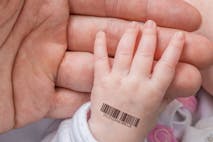
Issues
Angeline Tan
·
Guest Column
Emily Berning
·
Opinion
Nancy Flanders
·
Opinion
Mark Wiltz
·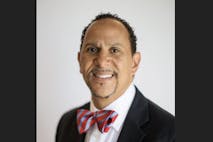
Human Interest
Christina Marie Bennett
·
Media
Christina Marie Bennett
·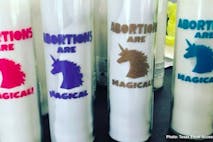
Activism
Christina Marie Bennett
·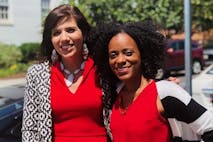
Issues
Christina Marie Bennett
·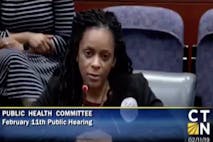
Activism
Christina Marie Bennett
·